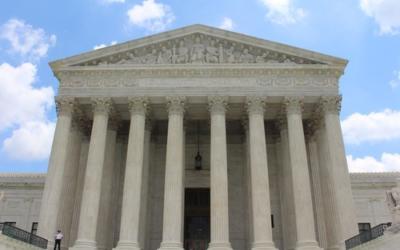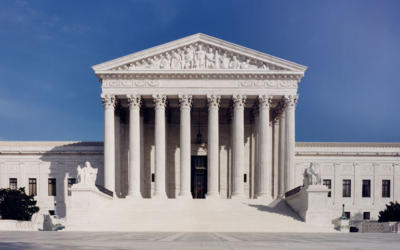AMICUS ADVOCACY PROJECT
The Amicus Advocacy Project
An amicus brief comes from the Latin term “amicus curiae” which means “friend of the court.” Although most amicus briefs are persuasively written to support one side of a case, they allow interested, third parties the chance to provide the court with information that is relevant and helpful to the case but that may not otherwise be brought to the court’s attention.
CHILD USA files amicus briefing in cases whose outcomes impact the civil rights of children. We have been delighted to work with numerous attorneys across the United States, and welcome partnerships with law firms to work on pro bono matters with us.
If you are an attorney who needs amicus support or would like your firm to have the opportunity to work on cutting edge amicus briefs involving child protection, please contact us at info@childusa.org.
BRIEFS
S.T. v. DIOCESE OF ROCKVILLE CENTRE ET AL.
This amicus brief was written as a response to Defendant diocese’s challenge to the constitutionality of the revival provisions of the Child Victims Act in New York. Issues include whether CPLR § 214-G is constitutional under the United States Constitution and the New York Constitution. The NY...
A POLISH CASE
This amicus brief was written by Ending Clergy Abuse in support of Plaintiff in connection with the matter involving the liability of a religious organization for acts of its clergy. Issues include whether a religious organization is liable for act of its clergy across multiple countries including...
NELSON v. CLARK in Case No. 5D19-0473
The Leadership Council for Child Abuse and Interpersonal Violence and CHILD USA partnered to file an amicus brief on behalf of a mother to request that the Court vacate the Amended Supplemental Final Judgement on Supplemental Petition to Modify Parental Responsibility, Timesharing, Child Support...
RIA WILLIAMS v. KINGDOM HALL OF JEHOVAH’S WITNESSES, ROY, UTAH
This amicus brief was written to request a ruling by the Supreme Court of Utah after a lower court found that the First Amendment immunizes religious institutions from liability for tortious claims arising from a religiously-motivated sexual assault investigation. CHILD USA examined the ways in...
GALLAGHER v. DIOCESE OF PALM BEACH, INC.
This amicus brief was written to request a United States Supreme Court ruling after a lawsuit initiated by a priest for defamation against a Catholic diocese was dismissed based on the ecclesiastical abstention doctrine. Issues include whether the Florida case should be resolved according to...
MORROW v. FORD
This amicus brief was written to support Petitioner’s writ of habeas corpus following a murder conviction and death sentence, claiming ineffective assistance of counsel where trial counsel did not conduct an investigation into the Petitioner’s childhood. Issue includes whether child sexual abuse...
MONTANA v. TIPTON
This amicus brief was written in support of a Petition for Writ of Certioari where the Supreme Court of Montana concluded that the DNA provision was constitutional, but that it did not allow for the revival of previously expired claims. Issues include whether Montana’s law permits revival of...
IN RE: FORTIETH STATEWIDE INVESTIGATING GRAND JURY
This amicus brief was written in response to Defendant dioceses subjected to a grand jury investigation and its argument that private attorneys who have knowledge of the Pennsylvania Grand Jury Report must keep all information confidential. Issues include whether the Pennsylvania Full Grand Jury...
IN RE JOHN DOE
This amicus letter was written to support a Petition for Writ of Mandamus where a Plaintiff’s lawsuit was barred based on the ecclesiastical abstention doctrine. Includes issue of whether a private school with a religious sounding name and/or loose religious affiliation can rely on the religious...








